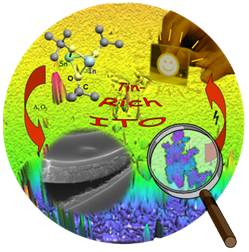Prof. Dr. Matthias Driess

Chair of UniCat since 2007
Member of UniCat's Executive Board
Scientific Director at BasCat
Research interests
Metalorganic chemistry, precursor synthesis, molecular models for heterogeneous catalysis, molecular main group and organometallic chemistry
Research Fields in UniCat
Research Field D1*
Research Field D2*
Research Field D3*
Research Field E3
* Main Research Fields
Selection of research projects
- Novel coorperating ligands for the heterolytic bond activation
- Transition-metal silylene complexes
- From activating small molecules to hetero bimetallic transition-metal complexes
- Synthesis and characterisation of transition-metal silyline complexes
- New single source precursors for the metal-doping stannic oxide as an alternative to ITO
Relevant News
Hot paper at room temperature

The first single-component N-heterocyclic silylene borane activates a variety of small molecules, such as O2, N2O, CO2, H2, and H2O. Notably, the activation of H2O makes it a metal-free system for dehydrogenation of H2O.
Vibrant insight

New joint paper by Driess and Hildebrandt in Angewandte Chemie. The first S-oxygenated [NiFe] complex is a structural and vibrational spectroscopic model for the S-oxygenated active site of the NAD+-reducing [NiFe] hydrogenase from Ralstonia eutropha.mehr
Research Highlight "A New Domain of Reactivity for High-Valent Dinuclear [M(µ-O)2M’] Complexes in Oxidation Reactions"

The strikingly different reactivity of a series of homo- and heterodinuclear [(MIII)(µ-O)2(MIII)’]2+ (M=Ni; M’=Fe, Co, Ni and M=M’=Co) complexes with β-diketiminate ligands in electrophilic and nucleophilic oxidation reactions is reported, and can be corre
Matthias Driess has been selected as the recipient of the Davison Lecture

UniCat Chair Prof. Dr. Matthias Driess has been honored by the Massachusetts Institute of Technology to give the renowned Davison Lecture in Cambridge, USA. This Award recognizes individual groundbreaking contributions to Inorganic Chemistry.
Einstein Centre for Catalysis: Election of a temporary Executive Board
The temporary Board of the Einstein Centre for Catalysis was constituted during a meeting of the extended UniCat Executive Board on April 26, 2016.mehr
Douglas Stephan selected as Einstein Visiting Fellow

The Einstein Foundation Berlin has announced that Professor Douglas W. Stephan of the University of Toronto has been selected as newest Einstein Visiting Fellow.mehr
The Einstein Center of Catalysis: catalyzer in natural and life sciences

The Einstein Foundation Berlin will in future fund the Einstein Center of Catalysis proposed by the Cluster of Excellence UniCat. mehr
Research for raw material change: UniCat-BASF Joint Lab „BasCat“

The Cluster of Excellence Unifying Concepts in Catalysis (UniCat) and BASF SE officially opened their joint laboratory, BasCat at the TU Berlin today. Thus, the Charlottenburg campus is enriched by another science building. On the roughly 1,000 square metemehr
A Molecular Approach to Self-Supported Cobalt-Substituted ZnO Materials as Remarkably Stable Electrocatalysts for Water Oxidation

Hot Paper in Angewandte Chemie by Anna Fischer and Matthias Driessmehr
Matthias Driess elected as a member of the Berlin-Brandenburg Academy of Sciences and Humanities

Professor Dr. Matthias Driess, Chair of UniCat, has been elected as a member of the Berlin-Brandenburg Academy of Sciences and Humanities by its council appreciating his scientific achievements. The Berlin-Brandenburg Academy of Sciences and Humanitimehr

